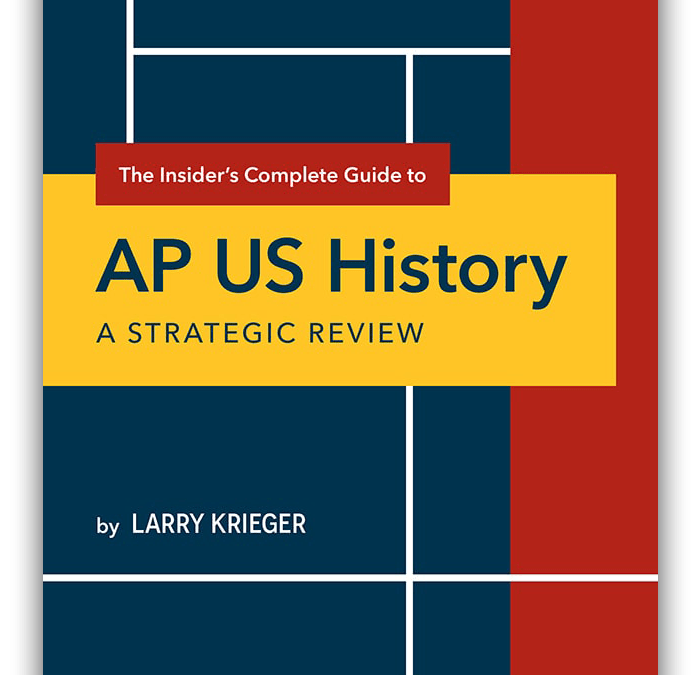
The three-cueing system and its misuses (or: the biggest problem in reading you’ve never heard of)
Attention: this page has moved!
It can now be found at https://www.breakingthecode.com/the-three-cueing-system-and-its-misuses/

Attention: this page has moved!
It can now be found at https://www.breakingthecode.com/the-three-cueing-system-and-its-misuses/

If you live in the New York City area, you might have heard about the recent student protests against cuts to the arts programs at LaGuardia High School (aka the “Fame” school).
I don’t normally focus on local news, but in this case, I think the real story is much larger than what’s getting reported; in fact, I think that it’s getting overlooked entirely. I happen to have some insider knowledge of the school (colleagues, former students), and although it’s unique in many regards, some of the changes it’s undergone are actually reflective of a much larger trend involving the creeping privatization of public education.
In case you haven’t been following the events, here are the basics: (more…)

Considering that a large part of my job revolves around grammar, I’m somewhat more laid-back about certain rules than one might expect. Or rather, like most people who traffic professionally in the English language, I have a set of rather idiosyncratic preferences that may or may not align with what most people imagine a member of the grammar police would take people to task over.
If, for example, someone assures me that they would never, ever end a sentence with a preposition or split an infinitive, my response is, well, “meh.”
One of my biggest pet peeves, however, involves dependent clauses—specifically, ones begun by subordinating conjunctions—and commas. Or rather, the lack thereof. (more…)

Photo credit: Tricia Koning Photography
For this interview, we are happy to present Gerald Graff and Cathy Birkenstein Graff, professors at the University of Illinois-Chicago. They are the authors of They Say/I Say: The Moves that Matter in Academic Writing, one of the most widely used college composition texts in the United States. In addition, their work has had an incalculable influence on both the original version of The Critical Reader and the AP Language and Composition edition of that book. We are enormously grateful for their participation in this series.
Bio
Gerald Graff, a Professor of English and Education at the University of Illinois at Chicago adn 2008 President of the Modern Language Association of America, has had a major impact on teachers through such books as Professing Literature: An Institutional History, Beyond the Culture Wars: How Teaching the Conflicts Can Revitalize American Education, and, most recently, Clueless in Academe: How Schooling Obscures the Life of the Mind.
Cathy Birkenstein, who first developed the templates used in They Say/I Say: The Moves that Matter in Academic Writing, is a Lecturer in English at the University of Illinois at Chicago. She received her PhD in American literature and is currently working on a study of Booker T. Washington. Together Gerald and Cathy teach courses in composition and conduct campus workshops on writing. They live with their son, Aaron, in Chicago.
How did you come to write They Say/I Say? Did it develop organically from your teaching over an extended period, or were there specific incidents that inspired you to write it?
It was more of a slow process that developed over time in the 1990S as we compared our experiences as college teachers. What struck us most vividly at this time was our students’ widespread confusion over how to write an academic paper. To us, this confusion seemed largely unnecessary since, in our view, academic writing follows a rather conventional, elemental pattern that students could readily learn. As we thought about our own struggles with writing, and about what successful writers do, we came to believe that, despite its many moving parts, academic writing has one big constant: the move of entering a conversation, which is usually done by summarizing what other people have said or are saying about your subject and then using that summary to launch your own view, whether to agree, disagree, or some combination of both. (more…)

Over the last few days, chatter about the release of the College Board’s new “adversity index”—a number designed to encapsulate the amount of socioeconomic disadvantage applicants have faced—has finally eclipsed talk of the college admissions scandal (well, mostly).
As the NY Times reports:
The College Board announced on Thursday that it will include a new rating, which is widely being referred to as an “adversity score,” of between 1 and 100 on students’ test results. An average score is 50, and higher numbers mean more disadvantage. The score will be calculated using 15 factors, including the relative quality of the student’s high school and the crime rate and poverty level of the student’s neighborhood.
I think I may be the only person having this reaction, but honestly, I think that this is a whole lot of fuss over what is in some ways a nothingburger. Not a complete nothingburger, mind you—there are some genuinely concerning implications—but also a smaller deal than many people are making it out to be. (more…)

Just when I thought I had a grip on how unpredictable the college admissions process has become, I was told the following story by an acquaintance whose son is a senior in a very top suburban district outside of New York City.
It sounded a bit improbable, but his mother assured me that this is actually what happened.

Attention! This post has moved.
It can now be found at: https://www.breakingthecode.com/sight-words-arent-just-little-words/
A couple of days ago (4/21/19), the New York Times ran an article about a Kansas community’s rebellion against the Summit Learning platform, a controversial ed-tech initiative funded in large part by the Chan-Zuckerberg foundation.
Normally, I try to hold myself at as much of a distance as possible from the ed-tech world, but in this case, I seem to have acquired an inadvertent stake in things: last school year, while looking at my analytics (see, I’m data-driven!), I suddenly noticed that I was receiving regular traffic from summit.org and that, moreover, the number of daily referrals from that site corresponded almost exactly to the number of hits on my “how to use a dash” post.
Obviously, a link to the piece had been incorporated into the Summit platform.
When I first discovered this, my curiosity was piqued, and so I spent some time on the main Summit website trying to figure out where my blog was linked to. (Is it just me, or is the ransom-note motif not positively creepy?) Predictably, aside from a handful of vague, weak sample lessons that could be downloaded, I was unable to access anything more substantive. Still, I assumed that more real lessons—even really poorly constructed ones—had to exist…right? At that point, I didn’t really have the time or the inclination to investigate further.
Then, as I was reading the Times article, I came across this:

I recently came across an Atlantic article by the child psychologist Erica Christakis, in which she discusses a concept she terms “adultification”—that is, the attribution of adult traits and behaviors and ways of thinking to children. On its surface, the article—which focuses on active shooter drills in elementary schools, of all things—seems very far removed from things like test prep and college admissions; however, as I read through the piece, I couldn’t help but notice a link. I think Christakis really nails this phenomenon in a way I haven’t seen elsewhere. As she writes: (more…)

In the social sciences, there is a principle known as Campbell’s Law, which states the following:
“The more any quantitative social indicator is used for social decision-making, the more subject it will be to corruption pressures and the more apt it will be to distort and corrupt the social processes it is intended to monitor.”
Or, said more simply, “When a measure becomes a target, it ceases to be a good measure.”
Although selective colleges assess applicants holistically rather than according to strict numerical metrics, I think that a modified version of this rule is in fact very relevant to the admissions process. (more…)

My company is named LarryPrep. It consists of just one person – me!
We have to turn the clock back to 1992 in Edison, New Jersey. At that time I was the Social Studies Supervisor for the Edison Public Schools. Dr. Kresky, the Assistant Superintendent for Curriculum, called an emergency meeting of all supervisors to develop an action plan to counter the decline in district SAT scores. The other supervisors blamed a variety of factors ranging from harsh scoring scales to unmotivated students. Finally, I volunteered to teach an after school “Crash Course.” That afternoon I drove to nearby Princeton and bought a number of SAT prep books including a College Board book with 10 real SATs. I spent the next week poring over the books. I then created a series of after school lessons focusing on vocabulary and critical reading. Verbal scores rose an average of 40 points! As the expression goes, the rest is history. Soon Dr. K scheduled me to teach a Crash Course at both high schools and during the summer. I love the challenge of working with students to achieve a common goal of mastering a difficult test. I especially enjoy working with high school students. Their energy and commitment are contagious! (more…)

One of the side effects of the Harvard Admissions lawsuit has been a greater public awareness of the Z-list, a program in which certain candidates—primarily ones whose families can afford full tuition, as well as many legacies—who don’t quite make the regular cut are given the option of entering the following year. Similar practices, involving both year- and semester-long deferrals, exist at other highly selective schools. Cornell and Brown are among the other universities also known for these schemes, but they are quietly carried out at many additional schools.
One of the primary benefits of this arrangement is that it allows colleges to lock in a certain number of full-pay students without having to include them in official freshman admission statistics, thus lowering the officially reported acceptance rate. (It does, however, have the side effect of reducing the number of spots available in the following year’s class.)
In the past, this practice has been largely associated with elite private colleges, but the other day a colleague who teaches high school happened to mention to me that, for the first time she could recall, students were only being offered spring admission at their state flagship—an excellent school although not quite elite, and one that’s making a play to hoist itself into the next tier up.
So I’m wondering: in addition to encouraging applications from far too many students who don’t stand a remotely realistic chance of admission, is deferred admission going to be the next big thing in working the rankings? (more…)
Update (3/28/19): The Critical Reader received the books purchased from third-party sellers and confirmed that they were in fact counterfeits. A complaint was filed with Amazon, and the offending sellers now appear to have been removed.
3/22/19: If you are planning to purchase The Ultimate Guide to SAT Grammar, 4th Edition, from Amazon, please be aware that the main listing is being periodically given to third-party sellers who may be exploiting the Fulfilled by Amazon option to sell illegally printed copies of the book.
As a result of changes in 2017 to Amazon’s selling policy, The Critical Reader no longer supplies to most wholesalers or third-party Amazon resellers. As a result, there is no legal way for Amazon resellers to obtain our books in large quantities. (To read about my ongoing battle with Amazon over the Buy Box, click here.) (more…)

Since the whole rest of the world has by now weighed in the college admissions-bribery scandal involving, among others, the children of Felicity Huffman and former Full House star Lori Loughlin (aka Aunt Becky), I’m going to throw in my two cents as well. Actually, it’s more like a dollar, but you get the point.
In case you’ve been living under a rock for the past few weeks, a number of extremely wealthy parents have been implicated in a scandal involving passing their children off as athletic recruits to a variety of prestigious colleges (including USC, Yale, NYU, Stanford, and Georgetown) in order to guarantee their admission. The scam also involved procuring extra time for standardized tests and then falsifying test results (either paying a third party to sit for the exam or enlisting a proctor who changed incorrect answers).
At the center of the scandal is William Singer, a college consultant in Newport Beach, CA, who bribed athletic department members in order to place students—who in many cases did not even play the sport they were supposedly being recruited for—onto the coach’s list, an act of fakery that at its most absurd involved photoshopping students’ heads onto pictures of athletes’ bodies. The various admissions offices subjected the applicants to no real scrutiny, and the ploy was only uncovered by chance, as part of an unrelated investigation. (If you’d like a complete rundown of the players involved, The Daily Intelligencer has compiled a very helpful list.)
Now, for anyone who has even a passing familiarity with how cutthroat the elite college admissions process has become, none of this should come as any surprise. Any loophole, no matter how small, will eventually be exploited by those savvy and rich enough. But aside from that, permit me some additional thoughts. (more…)

Richard McManus is a committed behavioral executive who has designed and delivered training programs for executives, managers and teachers. His mission is to increase the ability of USA schools and teachers to teach reading to all students.
Richard founded The Fluency Factory after 20 years of dreaming, thinking and planning. He is and always will be committed to serving all students — both struggling students and high achieving students. He created a system of fluency charts to measure skills and build the love of learning. The charts provide a direct measurement that can be communicated immediately to the student. They can see their learning from minute to minute, day to day, week to week, in clear, graphic terms. Seeing this progress gives the student the confidence that he or she can do more, and that learning does not have to stop, or be bound by present skill deficits (more…)

Back around 2013, when I was writing the original edition of The Critical Reader, I happened across research showing that one of the primary differences between teenagers’ writing and that of adults lies in the use of concessions—words like however and nevertheless and until, which are used to signal the introduction of an objection or a conflicting point. The adult writers used these types of words consistently, but they were largely absent from the students’ papers. I’ve thought about the implications of that fact in a general way before, but as I’ve recently come to realize, I’ve never really thought them through. This post is my attempt to do so. (more…)

In discussions about reading instruction, a commonly raised point is that students with reading disabilities—particularly dyslexia—suffer disproportionately when deprived of systematic instruction in phonics. In fact, this is virtually impossible to dispute—whereas many students in whole language classrooms do manage to figure out enough of the rules to become reasonably proficient readers, students who cannot make sense out of word/sound relationships have no way of keeping up. And if their difficulties are not noticed in time, or they lack access to competent reading specialists, either through their schools or privately, the consequences can indeed be extremely dire. (The percent of prison inmates with reading disabilities is, for example, astronomical.)
I’m saying this upfront because I do not want in any way to minimize the difficulties faced by these students and their parents. But what I’m interested in examining here is how some of the rhetoric surrounding reading pedagogy operates—how concepts like “normal” and “abnormal” are defined and how, in some cases, the recognition of the importance of phonics for students with reading disabilities like dyslexia can become a tool for reinforcing naturalistic ideas about reading.
According to one narrative I find particularly pernicious, a phonetic approach to teaching reading is acknowledged as acceptable, but only for children with reading disabilities; for “normal” children, it is implied, exposure to high-quality literature and participation in enjoyable activities that foster a love of reading are by themselves sufficient for reading (that is, decoding) to be learned automatically.
Incidentally, I was already planning to write this post when, by pure chance, a perfect specimen of this viewpoint appeared (as if by magic!) in my inbox, courtesy of Diane Ravitch’s blog.
In the course of a post about the insanity of subjecting kindergartners to standardized reading tests—a stance that, for the record, I agree with 100%—Ravitch cites Nancy Bailey, a former special-education teacher and Ph.D. in educational leadership, on the ways in which children learn to read. As Bailey describes:
Some children easily acquire reading skills without formal phonics instruction. They are curious about words and are able to sound letters out as they listen to and enjoy picture books. They may read well before they start school.“
Other children learn a little later. And some with disabilities may need extra assistance with a formal phonics program.
“Repeatedly testing young children to find out how they read at such an early age would be better spent reading out loud lovely, funny, engaging picture books, and letting children develop their language skills through play!”
What interests me in this passage is the way Bailey contrasts the needs of students with and without reading disabilities. Consider the phrasing: “Some children easily acquire reading skills without formal instruction.” Yes, this is true, although it only applies to a very small percentage. (Another 35% will learn to read with broad instruction.)
What Bailey says next is where things get problematic: “Other children learn a little later. And some with disabilities may need extra assistance with a formal phonics program.”
Look carefully at how this is phrased: not “other children need varying amounts of direct instruction to learn to read,” but “other children learn to read later.” Taken on its own (and in the absence of any pre-existing knowledge about Bailey’s stance on whole language), this could charitably be written off as an unintentional omission, but it is the next statement that gives the game away. By juxtaposing “other,” non-learning-disabled children and those “with disabilities, who may need extra assistance with a formal phonics program,” Bailey clearly implies that “normal” children will learn to read more slowly than children in the most exceptional group—but that they do not need formal phonics in order to acquire that skill. And that is simply not true.
Furthermore, the use of the word may suggests that even in cases where a learning disability is present, a phonetic approach is only one of many possible options. Are there other ways in which a dyslexic student might learn to read? Theoretically, yes—in the absolute sense, anything is possible. And presumably a very small percentage of students will continue to struggle despite receive intensive phonics instruction. But phonics is the only solution demonstrated to be consistently effective for students who struggle with decoding—to the best of my knowledge, there is no accepted mainstream research suggesting anything to the contrary. (And again, parents don’t pay for their children who are struggling with reading to go to whole language centers.) In light of Bailey’s other remarks, her wording here seems to imply that given enough time, some students with genuine reading disabilities will eventually just pick up the whole reading thing on their own, no intervention needed. Again, theoretically possible, but in reality… the result will probably be years of frustration.
Reading between the lines here, it is possible to catch of whiff of something vaguely… if not exactly condescending, then perhaps slightly pitying. The poor dears… They can’t learn to love reading naturally, through fun activities, like their peers. No, they need to sit with workbooks (the horror!) doing those terrible, awful, boring rote drills that won’t teach them to love reading at all.
Consider now the broader assumptions lurking behind this perspective. Phonics can be written off as something that “other,” disordered children need. Normal people do not need to learn in a structured, sequential way, or to have concepts carefully and explicitly broken down for them. Given the right environment and right set of attitudes, they just… catch it. Like magic.
Furthermore, framing the problem in these terms allows the problem to be placed squarely on the students’ shoulders. Teachers need not question their own methods because a student who fails to learn naturally must be deficient in some way and can be passed off to a trained expert, thus preserving the status quo.
What makes this such a seductive fantasy is that children without obvious learning disabilities may in fact appear to do just fine in whole-language classrooms. The words they are asked to read are mostly simple and straightforward, and they can get pretty far on memorization—particularly if no one bothers to probe their true level of understanding or has an active interest in not assessing it. (In light of many teachers’ visceral loathing of memorization, I actually find this very bizarre.) But once reading becomes more challenging—once the books no longer have pictures, and the terms are too technical to be figured out without context clues—things start to fall apart.
Richard McManus at the Fluency Factory mentioned to me recently that he sees a lot of kids who seemed okay in elementary school but are about to run headlong into a huge amount of trouble in middle school because they just can’t compensate anymore. But by then, the damage has started to accumulate. With solid instruction, students may be able to scramble back up to grade level; without it, they fall increasingly behind.
Then there are the students who continue to manage to keep skating by through the first couple of years of high school; for many of these students, a low (P)SAT or ACT score is the first real sign that something is amiss, particularly if they spend most of their in-class time doing groupwork and have grades based more on projects and class participation than on tests or papers (or if grades at their school are exceptionally inflated; or if they rely heavily on tutors for help with schoolwork, as was the case for several of my students; or if their parents call to protest every time they receive anything lower than an A-…). Unfortunately, by that point it is exceedingly difficult to play catch-up. These were among the students I saw, the ones who read in ways so disorganized that at first I could barely wrap my head around it. Without exception, they were unable to score above the high 500s in Reading on the (old) SAT or the low-mid-20s on the ACT, regardless of how much tutoring their received.
I suspect that the proliferation of students in this category also contributed to the longterm decline in SAT reading scores, and thus to the recent elimination of the vocabulary portion of the SAT. A decent percentage of the words tested could be figured out—or at least reasonably guessed at—based on their component parts (roots, prefixes, suffixes). Indeed, that was in large part the point of the test! But students who learn to read through whole language, particularly if they attend schools that do not emphasize systematic vocabulary development in the later grades, are ill-prepared to break down words that way (although if they’re lucky, they might pick up something from foreign-language class).
A striking number of my students could not distinguish between “looks/sounds like” and “is related to,” for example assuming that defer meant something like differ because the two were pronounced similarly (I saw that one on multiple occasions). At the extreme end, they might not even really notice the difference in appearance between the two—or at least not register the difference in vowels as having any particular significance for their meaning. As a result, it was impossible to help them approach what was essentially a logic test in a logical manner.
Perversely, then, the practice of treating phonics as something reserved for students with reading disorders has the inadvertent effect of making better decoders out of students diagnosed with learning disabilities (they’re the ones who get the intervention), and with producing reading disorders in students who would not otherwise have them. And even if students do not have outright reading disabilities, they may become far weaker readers than necessary.
And perhaps the biggest irony of all: no matter how joyful their early experiences, students who have difficulty reading do not like to read—once the words get hard, those six-year-olds who were oh-so-excited to participate in “literacy-building” activities suddenly get a lot less enthusiastic. A student who consistently misreads words will find it difficult to figure out just what is going on in many texts, and/or may actively misinterpret their literal meanings (often, as I observed, in ways that do not make sense). Furthermore, if they are expending too much mental energy just trying to figure out what the words say, there will be no room left over to think about the meaning.
Who could possibly enjoy such a frustrating activity?
Who would want to engage in it at all?

I’ve been stunned by the reaction my previous post, “Unbalanced Literacy,” has generated (a couple of people have informed that I’m all over Twitter, a platform from which I remain willfully absent—let’s just say that pithy isn’t really my thing); had I known that the debate over phonics was still capable of generating such passion, I would have written something about it a long time ago! The piece took me hours and hours to write, and I’m gratified that it’s gotten such a great response.
That said, in light of some of the queries/interview requests I’ve received, I’d like to follow up on one of the points I made in the original piece, namely the fact that some teachers are suspicious of the push for increased phonics because they believe it represents an attempt by the ed-tech industry to exploit students for financial gain—essentially, that phonics will be marketed as the One Great Solution to magically boost reading scores, and that it will be used as an excuse to create all sorts of highly profitable apps and programs that can be marketed to school districts. (more…)